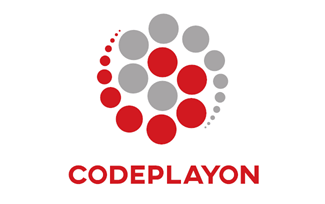The Benefits of Implementing Customer Reference Management Software
In today’s competitive market, businesses are constantly searching for ways to improve client engagement and operational efficiency. Customer reference management software emerges as a vital tool to foster customer advocacy and streamline reference-based marketing strategies. By automating and organizing the testimonial process, companies can amplify their credibility and leverage customer success stories effectively. Below, we delve into how this software can transform your customer reference practices and ultimately enhance your return on investment.
Exploring Customer Reference Management Software: A Game-Changer for Client Engagement
Alt text: A team in an office discussing customer reference during a meeting
In the realm of customer engagement, personalized interactions make all the difference. Customer reference management software offers a platform to gather and house detailed customer accounts that echo real-world experiences with your product or service. This repository of case studies, testimonials, and references can then serve as a persuasive tool in business proposals and presentations.
Such software democratizes access to customer success stories for sales teams, ensuring that the most apt references are used at the right times. By implementing customer reference management software, companies can curate a diverse array of narratives that resonate with various customer segments, enriching the sales process.
Moreover, these platforms often come with features such as search filters and tagging systems, which make it easier to pinpoint the most relevant success stories for any given scenario. Having immediate access to this content can dramatically enhance the agility and effectiveness of customer interactions.
Notably, customers can also benefit from such platforms, as they provide an organized way for them to share their experiences and contributions publicly. This recognition can incentivize further participation and deepen customer relationships over time.
Streamlining Operations With Centralized Reference Data.
Disparate customer information scattered across different departments can lead to operational inefficiencies. Centralized reference data through customer management software eradicates these silos, allowing a smooth flow of information. It makes retrieval and utilization of customer references more fluid and coordinated.
With everyone working from the same system, discrepancies and duplication of effort are minimized. This ensures that teams are not pitching the same handful of references to different prospects or worse, promising the same case study exclusivity. All team members get a comprehensive, real-time view of which references are being utilized, and how frequently.
Consistency in reference presentation is another benefit of centralization. The platform can provide templates or guidelines for how to talk about customer experiences, making sure that the message is aligned with corporate branding and communication standards.
Additionally, having a single source of truth for customer advocacy materials significantly reduces the time spent on reference-related administration. Sales representatives can devote more time to lead generation and nurturing, reaffirming the critical aspect of their job roles.
Measuring Success: The Impact of Customer Reference Management on ROI
Alt text: A woman in an office researching customer reference management on her computer
The ultimate goal of deploying any business tool is to see a positive return on investment, and customer reference management software is no exception. By reducing the time and resources dedicated to managing customer testimonials, companies can see a direct impact on their bottom line. More efficient operations translate into cost savings, freeing up capital for investment in other areas of growth.
In addition to these operational savings, the influence on sales effectiveness can be substantial. Quality customer references can shorten sales cycles and increase win rates, directly contributing to increased revenue. The ability to quickly provide a relatable customer success story can sometimes make the difference between closing a deal and losing it to a competitor.
Moreover, the data gained from a customer reference system can provide valuable insights. Analytics features within the software can track which references generate the most engagement or contribute to sales, guiding future decision-making on marketing strategies.
Furthermore, through this software, organizations can set tangible performance metrics for their reference management practices. By tracking key indicators such as utilization rates and conversion contributions, businesses can continuously refine their approach for maximum effectiveness.
Altogether, customer reference management software is less about the technology itself and more about how it can evolve your relationship with customers while optimizing your operations to better serve prospective clients. Overall, it represents a strategic investment that can yield both immediate and long-term benefits for business growth and customer satisfaction.




